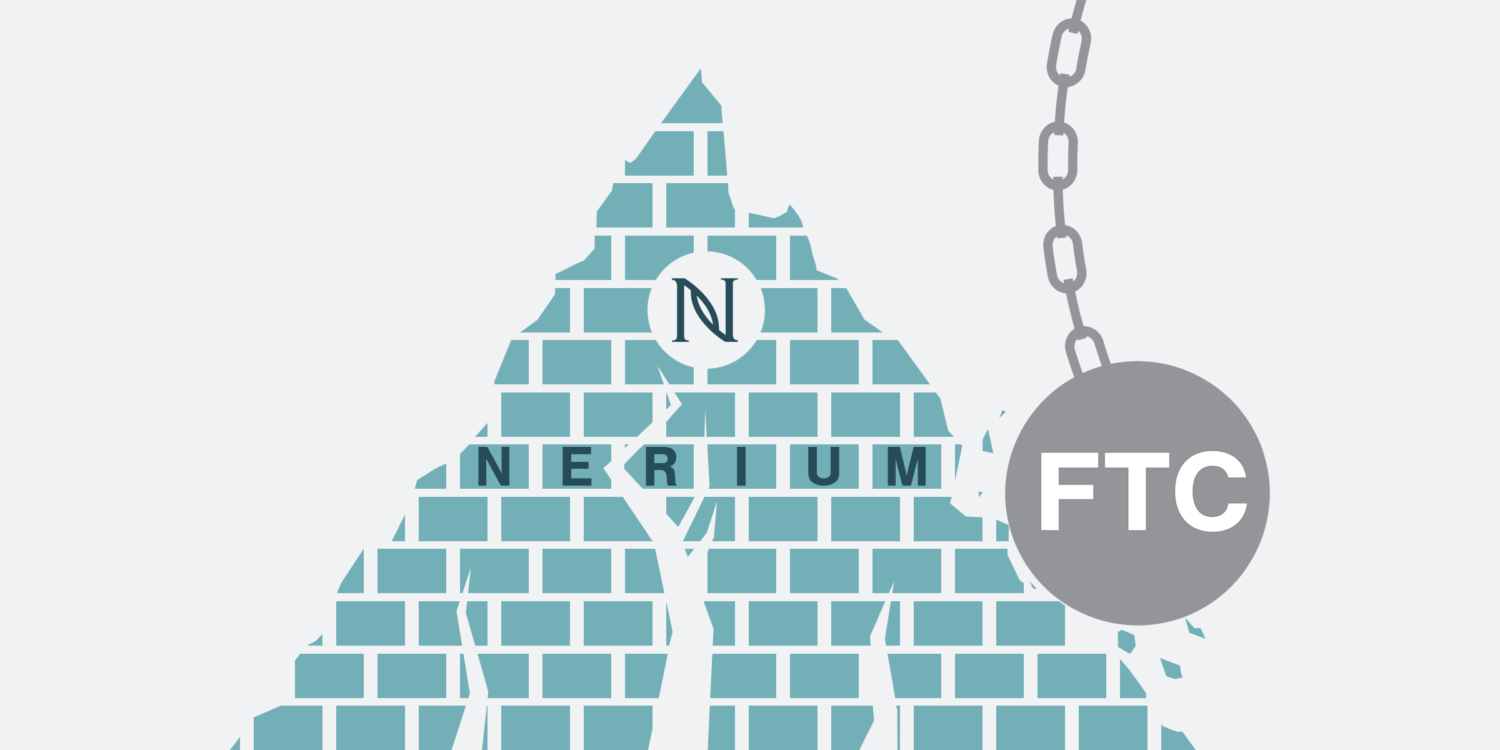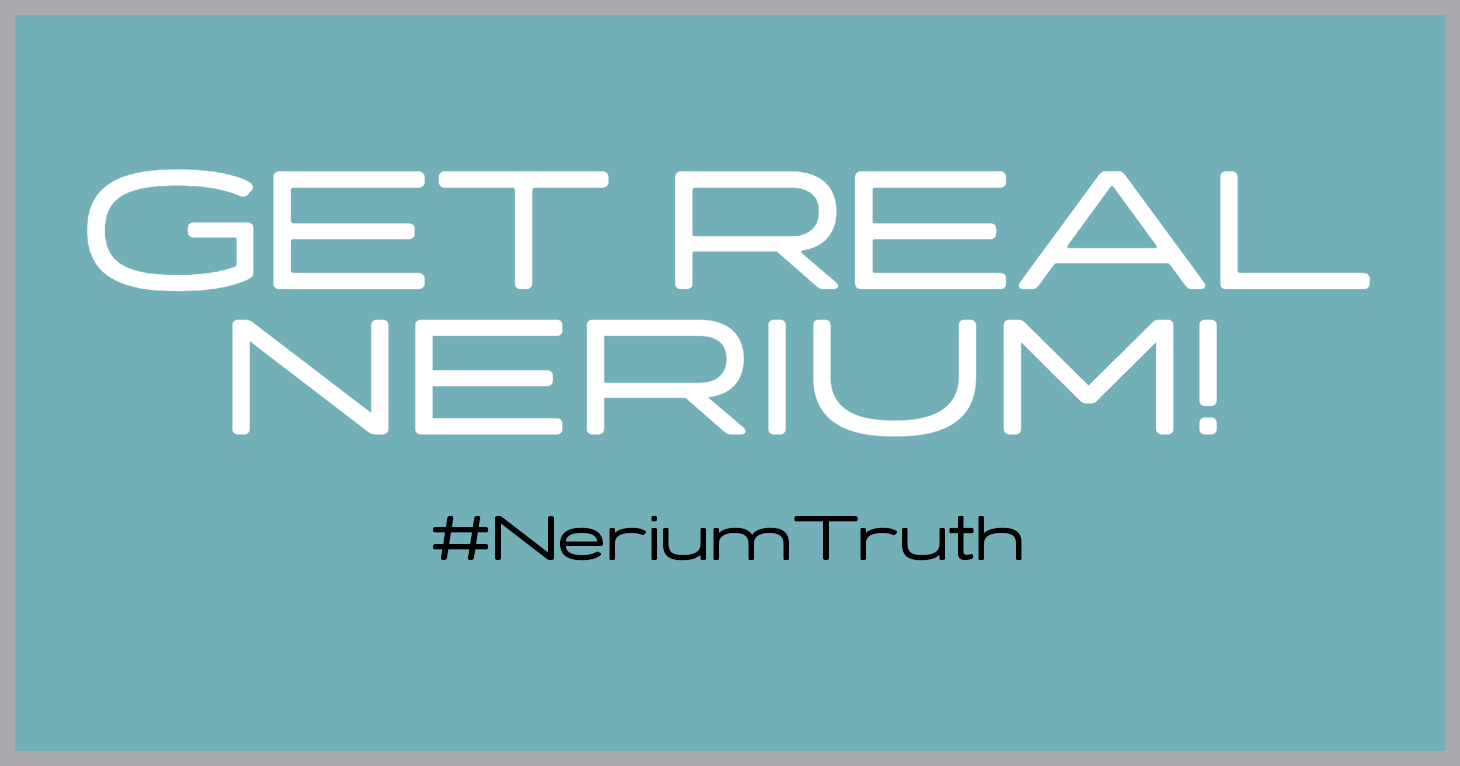
Court Rules that Success by Health Was a Pyramid Scheme
Court also finds that defendants made false and deceptive earnings claims.
Declarations in court filing read more like a legislative manifesto than remedies that could appropriately be issued by a court.
| | Bonnie Patten
UPDATES
9/28/23: Nearly four years after the FTC filed a lawsuit against Nerium/Neora accusing the company of, among other things, operating an illegal pyramid scheme, a federal court has found that the agency failed to provide enough evidence to support its claims and has entered a final judgment in favor of the company. The FTC has the option to appeal the decision, which followed a non-jury trial.
9/2/20: Nerium’s lawsuit against the FTC has been dismissed. The court found that Nerium’s claims were not ripe for adjudication and that it could properly defend itself against allegations that it is a pyramid scheme in the agency’s enforcement action currently pending in Texas federal court. Our original article follows.
Hours before the FTC filed a complaint against Nerium (aka Neora) in New Jersey federal court on Friday, Nerium filed a declaratory action in Illinois federal court preemptively challenging the agency’s charges that it operates a pyramid scheme that uses inappropriate health and income claims to market its products and sell its business opportunity. Although the company asserts that it filed its complaint in Illinois because that’s where you’ll find the FTC lawyers who are working on the case, the move can best be described as a veiled attempt to challenge the FTC in a jurisdiction that Nerium believes is more likely to agree with its wish list — a fact that was highlighted in a recent amici curiae brief filed by 22 states, the District of Columbia and Puerto Rico in support of the FTC’s attempt to overturn the 7th Circuit’s decision in FTC v. Credit Bureau Center, which strictly curtails the agency’s ability to obtain monetary equitable relief.
Nerium’s 58-page complaint against the FTC claims that the federal agency “is attempting to unilaterally and retroactively outlaw multi-level marketing” and “take the ‘multi’ out of multi level marketing.” The complaint takes the position that the FTC is attempting “to improperly, unilaterally, and retroactively change the law” when it comes to what is a pyramid scheme. And so, Nerium, on behalf of itself and “the MLM industry as a whole,” is asking the court to legislate from the bench. Among other things, Nerium is asking the court to declare that:
Oh, and Nerium is also asking the court to declare that it is not and has never been a pyramid scheme. All in all, Nerium seeks about a dozen declarations that read more like a legislative manifesto than remedies that could appropriately be issued by a court.
Many in the MLM industry have cheered Nerium’s lawsuit against the FTC and have committed to support the beleaguered company in its fight against the federal agency. Richard Brooke, an industry veteran, along with many others, applauded the effort on Facebook:
However, there are fundamental problems with Nerium’s lawsuit. Among them, the complaint relies heavily on irrelevant material (such as settlement discussions and an FTC official’s speech, in which he clarifies, “I speak only for myself and not for the Commission or for any individual commissioner[s]”) to argue that the FTC is attempting to improperly change the law. Ironically, in response to the agency’s alleged improper tactics, Nerium asks the court, untethered from a true case or controversy, to issue an advisory legal opinion vindicating the rights of the entire MLM industry. Such a public rights action would most certainly be an illegitimate exercise of judicial power.
While Nerium’s complaint appears to have served as a cathartic process for Nerium, its founder and the MLM industry, it is not likely to win the day. There is no escaping the fact that Nerium will have to defend itself against FTC allegations that it is and has always been a pyramid scheme. And in that battle the odds are very much against Nerium. In the last 28 cases that the FTC has brought against an MLM alleging it was a pyramid scheme, it has either won on summary judgment or at trial, or otherwise obtained a favorable settlement. Time will tell if the Nerium case increases the FTC’s record to 29-0.
Court also finds that defendants made false and deceptive earnings claims.
A recap of TINA.org pressuring Nerium to #GetReal
Watch for #NeriumTruth social media campaign exposing company’s inappropriate health and income claims.


